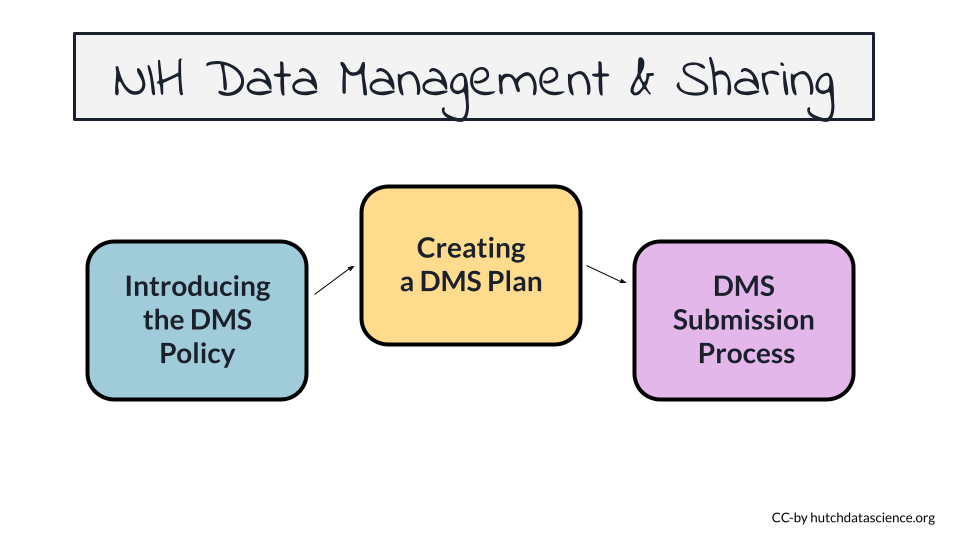
Data Management and Sharing for NIH Proposals
March 27, 2025
About this Course
The National Institutes of Health (NIH) policy for the management and sharing of scientific data applies for (most) grants submitted.
The main requirement of this new policy is that researchers include a Data Management and Sharing (DMS) plan with their proposal. Not all research will require data sharing. However, everyone must provide a justification if they can’t share their data.
Once a DMS plan is accepted by the funding agency, the researchers will be required to carry out the plan. However, updates can be made to the plan as well during the Just-in-Time process.
In this course we will describe what the new policy requires, places where you might want to share your particular kind of data, and how to deal with possible challenges associated with the policy.

Disclaimer
These materials have been developed at Fred Hutch for the purpose of assisting our faculty scientists with the new NIH data sharing policy requirements. While we are confident in the content of these materials, we make no guarantee that they will fully comply with NIH’s policy. This is a new policy, and only time will tell. We will revise these materials on an on-going basis, as appropriate.
